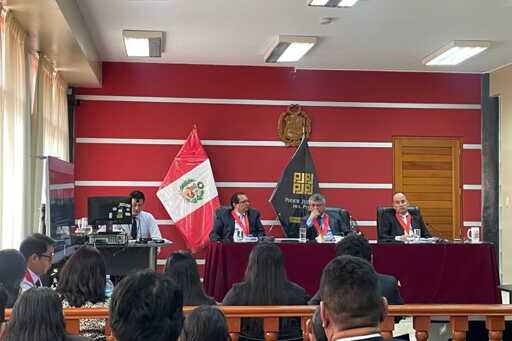After 11 years, the Alto Tamaya Saweto community has finally received confirmation of convictions in the 2014 murders of Indigenous Ashéninka leaders Edwin Chota, Jorge Ríos, Leoncio Quintanísima and Francisco Pinedo. The killings occurred along the Peru-Brazil border, where the leaders had been actively campaigning against illegal logging in their territory since 2008. On Aug. 25, the appeals chamber of the Superior Court of Ucayali, the department where the killings occurred, ratified the ruling of the first trial, which sentenced timber contractors José Estrada and Hugo Soria, as well as two timber workers, brothers Josimar and Segundo Atachi, to 28 years and three months of prison. “This is a historic ruling for Peru because it’s the first time the judiciary has recognized the work of Indigenous peoples in the defense of human rights and their relationship with nature,” Maritza Quispe, a constitutional lawyer of the Legal Defense Institute (IDL), told Mongabay Latam. Edwin Chota had led the committee of Ashéninka leaders who were going to Brazil to organize the defense of the Saweto forest. He was killed during the journey. Image courtesy of Anouk García. The loggers did not attend the sentencing hearing, which lasted approximately eight hours; therefore, the judiciary issued an immediate arrest warrant. “We ask the police to arrest those sentenced. If they are not in prison, there is no justice,” said Ergilia Rengifo, Ríos’ widow, after learning of the decision of the bench composed of senior judges Robin Barreda, Jonatan Basagoitia, and Marco Santa Cruz. A…This article was originally published on Mongabay
From Conservation news via this RSS feed


